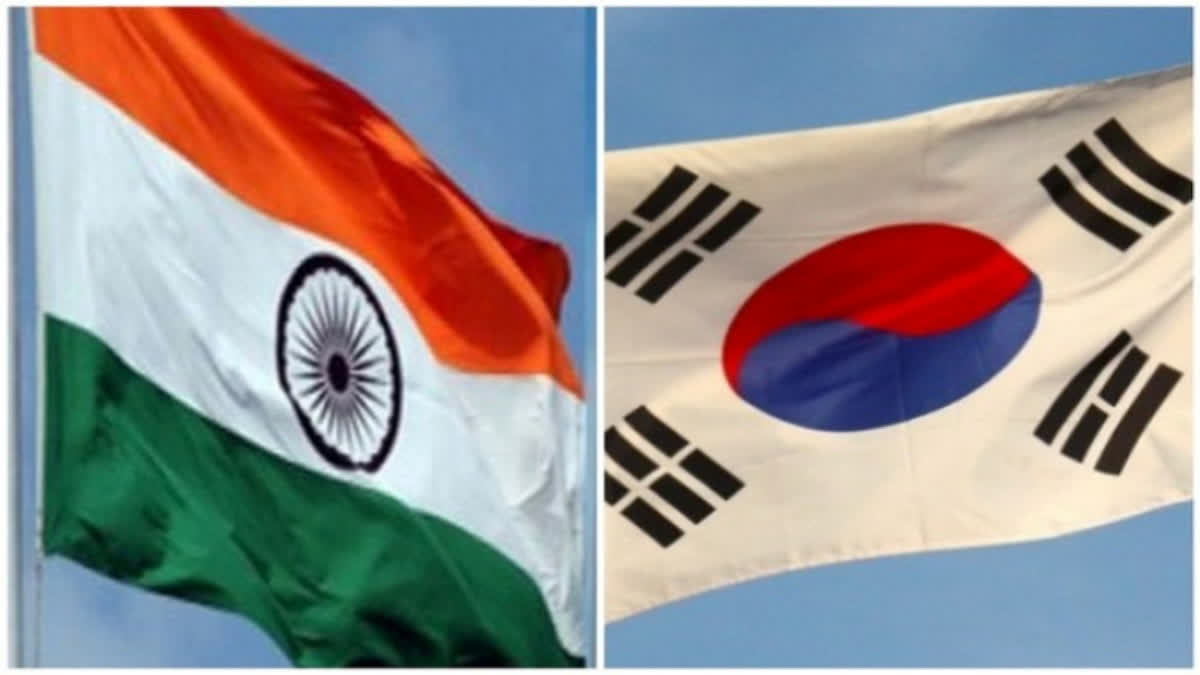New Delhi: Chang Jae-bok, Ambassador of Korea to India, on Tuesday said that the bilateral trade of US $28 billion and 600 Korean companies contributing to Make in India is testimony to the strong bilateral ties. India-Korea cooperation in finance, logistics, green hydrogen and electric vehicles holds significant promise, he said during the 6th India-Korea Business Partnership Forum 2023.
Meanwhile, describing Korea as India’s ‘trusted partner’ in a changing global order, Rajesh Kumar Singh, Secretary, Department of Industry, and Internal Trade (DPIIT), Government of India, indicated that the bilateral trade agreement would be upgraded to fortify the productive engagement between both countries and urged Korean companies to invest in India’s semi-conductor and renewable energy sectors to help accelerate digital and green transition.
“We have taken note of the suggestion that the India-Korea Comprehensive Economic Partnership Agreement (CEPA) needs to be upgraded to further strengthen the bilateral relationship," Singh said while speaking at the India-Korea Business Partnership Forum organised by the Confederation of Indian Industry (CII) in partnership with Korea International Trade Association (KITA), on Tuesday.
He further said, “India is trying to create a transition to a much stronger manufacturing base through schemes such as PLI under which over US$ 26 billion is being provided as an incentive in 14 sectors of the economy as well as in hi-tech areas such as semi-conductors where we are providing an incentive of over US$ 10 billion to attract global semi-conductor manufacturers to India."
“Many Korean companies have their largest Research & Development Centres in India what we call global capacity centres. They have emerged as leaders in the domestic markets and have also leveraged the infrastructure provided to make for the world”, Singh added. Byung Nae Yang, Deputy Minister of Trade, Ministry of Trade, Industry & Energy Korea, in his address, termed India as an important economic cooperation partner of Korea, and said, “Korea boasts excellent capabilities in future industries, including EVs, batteries, digital / biotechnology and clean energy by actively responding to changes in the global market. By combining Make in India with Korea’s Make History initiative, our two countries will create a synergy effect as optimal cooperation partners."
Speaking on the occasion, Amit Kumar, Ambassador of India to Korea, reiterated that efforts to widen and deepen the India-Korea special strategic partnership would lead to more collaborations in life sciences, electric vehicles, semi-conductors, green hydrogen, electronics, infrastructure, renewable energy, sustainable development, technology and innovation, startups and cultural exchanges.
He further stated that bilateral talks on trade, investment, infrastructure, energy and new technologies were aimed at enhancing bilateral trade from the current level of $28 billion and boosting two-way investments from $13 billion. India's aim to build a US$5 trillion economy can help Korean businesses, especially in areas of hi-tech manufacturing such as semi-conductor and defence, chemical, auto, food processing, IT/ITeS and EVs
The India-Korea meeting was followed by sectoral sessions on manufacturing and new and emerging sectors, wherein senior industry representatives from India and Korea shared their perspectives on promoting collaboration and investments in various sectors, including automotive, precision electronics, technology startups, medical technologies and infrastructure.



